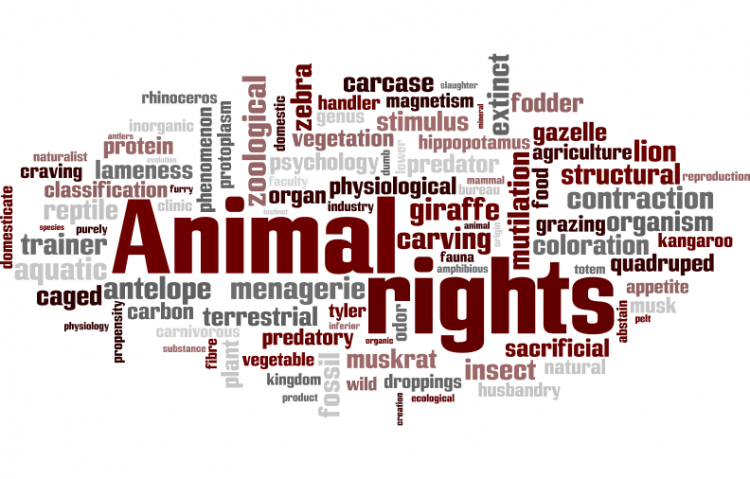
- Target:
- Irish Fur Farms
- Region:
- Ireland
- Website:
- www.naracampaigns.org
50 million animals are killed for their fur every year.
The animals murdered by the fur trade every year include mink, fox, rabbit, chinchilla, raccoon, coyote, sable and wolf. Even cats and dogs are used - many of whom are skinned alive.
Shockingly, even Ireland has a secret fur trade - At present there are 5 licensed mink farms operating in the Republic of Ireland. One of these also had a small number of foxes. The media reported that a representative of the Irish Fur Breeders Association said that fox farming is being phased out due to economic reasons.
In 2006, approximately 170,000 mink and 300 foxes were slaughtered in the Republic of Ireland for their fur pelts.
Mink and foxes on fur farms are reared highly intensively in small cages before being killed at about 6 months old for their fur pelts. The pelts are exported for sale on the international fur markets, to be used by the fashion industry.
At present, mink are farmed for their fur in the Republic of Ireland. There were also a small number of farmed foxes. The type of foxes reared on fur farms are silver foxes (which are a variety of the common red fox), and arctic foxes.
Killing of both mink and foxes normally takes place on the farm, and there is no legal requirement for a veterinarian to be present.
Mink are pulled out of their cages and put into a gassing box that holds around 50 to 70 animals. They are gassed to death in carbon monoxide or carbon dioxide. There are welfare concerns about batch killing of mink, and also about the types of gasses used.
Farmed foxes are killed by electrocution. An electrode is placed in their anus and another in their mouth and they are killed by an electric current passing through them. Compassion-Ireland is totally opposed to the use of electrocution to kill animals.
An undercover investigation by Compassion-Ireland and Respect for Animals in 2003 found that mink are kept in cages about 3 foot long and 1 foot wide, with a small nest box at one end. Fox cages have a floor area of about 4 foot by 4 foot and are about 28 inches high.
Fox and mink cages are usually in rows inside buildings that have open sides. The animals’ droppings fall through the wire mesh floor of the cages.
Farmed mink and foxes are fed on a porridge-like food made from chicken, meat and fish offal. This is placed on the top of each cage and the animals eat it through the wire mesh. Mink and foxes are confined in these cages throughout their lives until they are taken out to be killed.
(How Mink and Foxes Should Live their life in the wild) -
Mink in the wild always live near water and are good at swimming and diving. They even have small webbing between their toes. In the typical river environment, mink have a range of about 2 km along the river. Within their territories, mink often have several dens that they use to rest in and sleep in. Mink spend part of their time in water when hunting and part on the land, walking, bounding, rearing on their hind legs and climbing on rocks or trees. Mink are solitary animals and adults hunt alone.
Silver foxes are a variety of the red fox. In the wild, they may travel great distances. The daily mean is 6 km. They can run fast, jump well and swim strongly. They dig dens or use the dens of other animals. Foxes may be solitary or live in a group.
Arctic foxes are adapted to live in the snowy environment in the Arctic regions of Eurasia, North America, Greenland and Iceland. They roam across vast home ranges of around 30 km2 and even migrate more than 100 km in a single season. Arctic foxes can travel very long distances, often 10 to 20 km in a day. They can run fast and swim strongly. They build dens on the banks of streams, on hills or in rock piles, and these may be used by successive generations for 300 years. Arctic foxes are solitary animals.
What gives us humans the right to take their freedom away???
Please help to free these beautiful innocent animals!
They have a right to freedom and a long happy life, why not let them have it?!
You can further help this campaign by sponsoring it
The Fur Belongs To Beautiful Animals, NOT Ugly People! petition to Irish Fur Farms was written by Lizzie Delaney and is in the category Animal Rights at GoPetition.